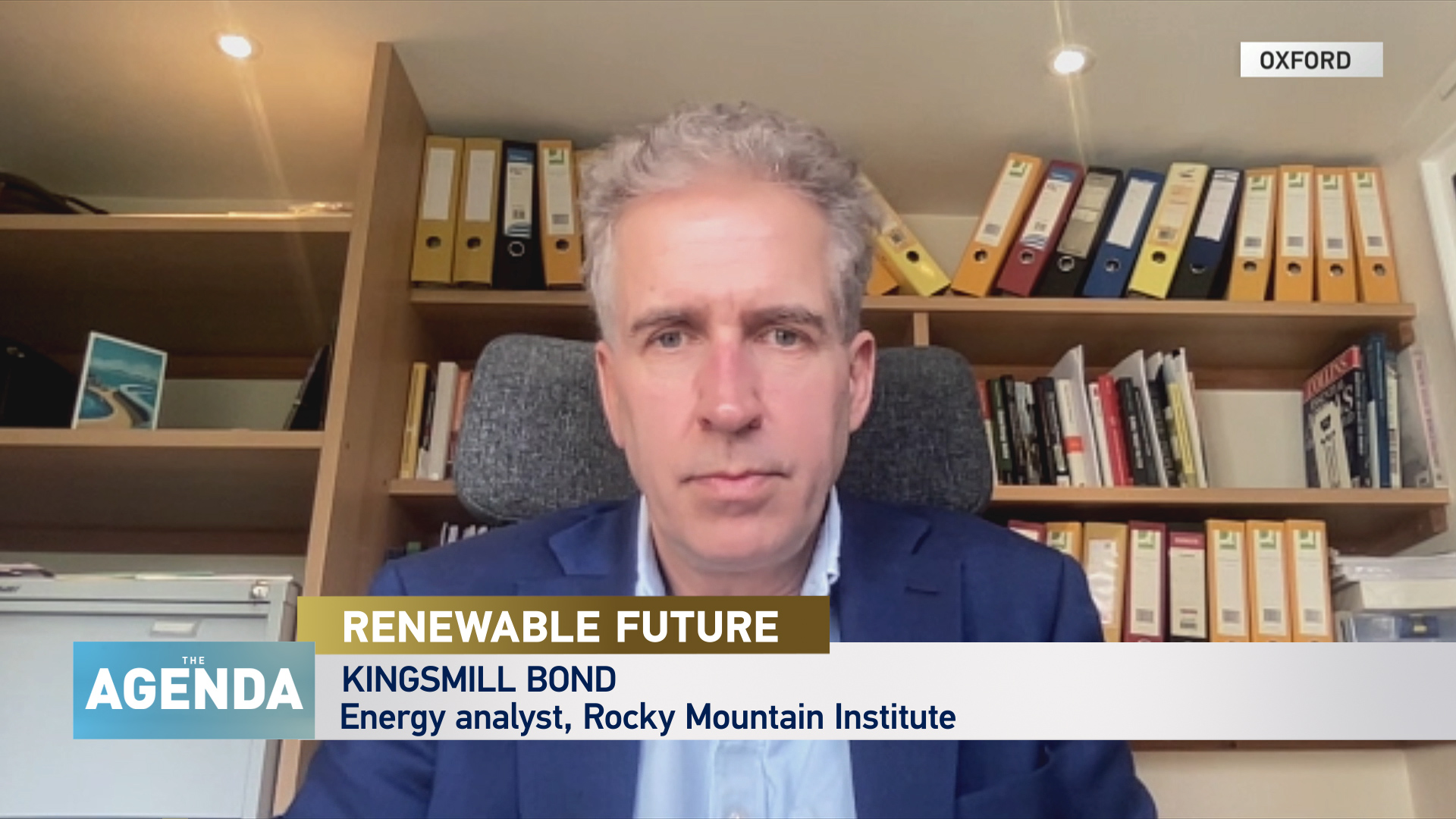06:03

WHAT'S THE ISSUE?
Many energy experts argue that a renewables-powered world would reduce our energy bills as well as our carbon footprint.
But given the switch would require substantial changes to our infrastructure, just what is the true cost of going green? The Agenda with Stephen Cole asks Kingsmill Bond.
MEET THE EXPERT
Kingsmill Bond is an energy strategist at the Rocky Mountain Institute and member of the Global Future Council on Energy Transition for the World Economic Forum.
He is also an advisor to Carbon Tracker and Research Affiliate at the Sustainable Finance Programme at the University of Oxford Smith School of Enterprise and the Environment.
Bond has worked as an equity analyst and strategist for more than 25 years, including for Deutsche Bank, Sberbank and Citibank in London, Hong Kong and Moscow.
He has studied the impact of the energy transition on financial markets for many years, believing the global move away from fossil fuels is its most important driver.

WHAT DOES BOND SAY?
Asked how poorer countries will afford a green energy transition, Kingsmill Bond says not doing so could cost them more:
"I guess the question you need to ask is how are poorer countries expected to pay for $150 per barrel for oil and $20 per unit for gas? The cost of fossil fuels is catastrophic now for the global south, [yet] the global south is absolutely replete with renewable resources."
Asked whether energy bills would rise as a result of the initial installation of expensive renewable energy infrastructure, Bond says he expects quite the opposite.
"There is false narrative that solar and wind are expensive…This is ridiculous. It costs 50 dollars/euros per megawatt hour. Fossil fuels is over 100 now.
"Therefore, I would see this crisis as being very material to solving some longstanding issues that we and many others been pointing out."

ALSO ON THE AGENDA:
- Zhao Feng, head of strategy and market intelligence at Global Wind Energy Council, explains how China is leading the way in wind power.
- Sama Bilbao y Leon, director-general of the World Nuclear Association, discusses why nuclear is still viewed as a dirty word in the renewable energy sector.

